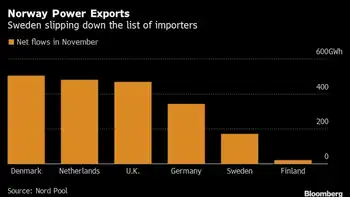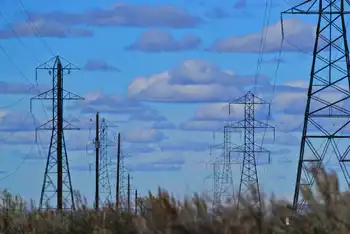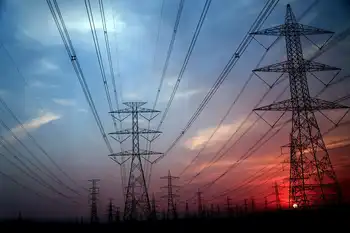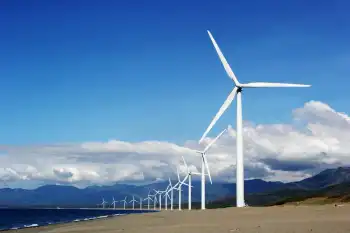Maldives to power capital with wind
According to a press statement put by the presidential office on its official website, Maldivian President Mohamed Nasheed unveiled a $200 million (US) foreign direct investment project which will produce clean electricity for North Male' atoll, including the capital Male, the international airport island of Hulhule' and a number of luxury tourist resorts.
The project will see the construction of the latest generation wind turbines, which will be connected to the electricity grid of Male through a network of submarine electricity cables.
The Maldives's State Electric Company Limited has signed a 20-year agreement with Falcon Energy, whereby Falcon Energy will build and operate a 75 megawatt wind farm in Gaafaru island, NorthMale'atoll.
On windy days, excess electricity generated by the turbines will be used to run a water desalination plant, which will produce bottled drinking water. On calm days, a liquefied natural gas plant will provide 50MW of back-up power.
Speaking at the ceremony, Nasheed said the government understood the importance of breaking the Maldives's dependence on the unpredictable price of foreign oil.
The president reiterated his belief that the winners of the 21st century would be "the countries who were ready to embrace renewable energy and green technologies."
"We want the Maldives to be the place to test renewables. We want the Maldives to be the place to build renewables. We want the Maldives to be the place to invest in renewables. We will position the Maldives as a showcase for renewable energy," said the president.
In March, Nasheed announced plans to make the Maldives carbon neutral in 10 years. A shift from oil to renewable energy production lies at the heart of the Maldives' carbon neutral plan.
Falcon Energy and it's partner WGS has commissioned onshore and offshore wind farms totaling 1,500 MW over the past ten years, in Britain, Spain, Portugal, Ireland and Canada.
Related News

Europe's Thirst for Electricity Spurs Nordic Grid Blockade
STOCKHOLM - A spat over electricity supplies is heating up in northern Europe. Sweden is blocking Norway from using its grids to transfer power from producers throughout the region. That’s angered Norway, which in turn has cut flows to its Nordic neighbor.
The dispute has built up around the use of cross-border power cables, which are a key part of Europe’s plans to decarbonize since they give adjacent countries access to low-carbon resources such as wind or hydropower. The electricity flows to wherever prices are higher -- without interference from grid operators -- but in the event of a supply squeeze,…




